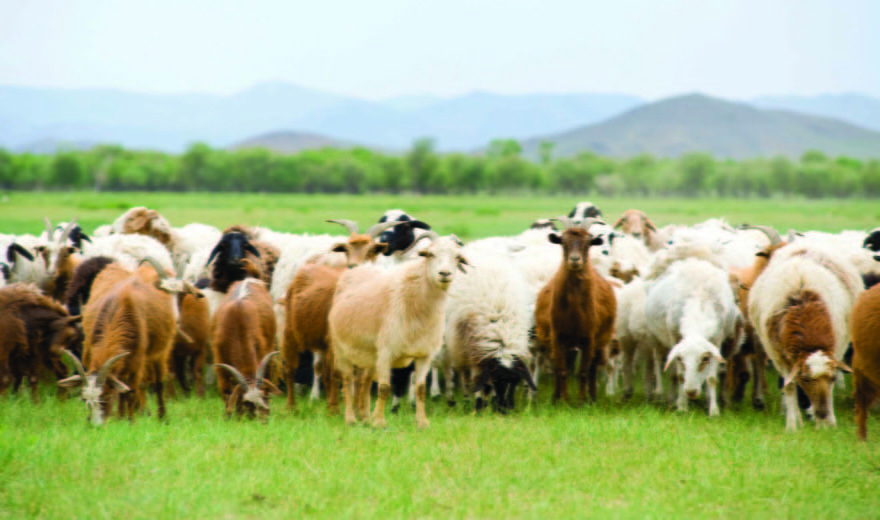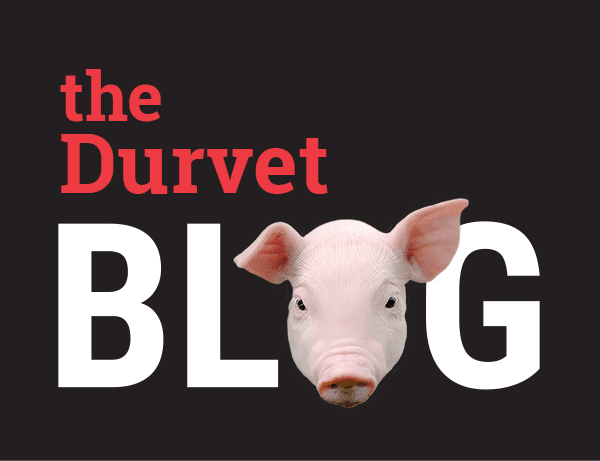
The cattle industry loses about $3 billion each year in lost weight gains, poor feed conversion and increased disease because of internal parasites, says Mark Alley, DVM, Managing Veterinarian at Zoetis, in a recent report.
With the financial impact and animal welfare concerns for cattle operations, he adds, it is important for producers to understand parasite control. Dr. Alley recommends year-round parasite control especially in the fall and again in spring before summer pasture turnout.
Parasites also pose a significant threat to the health of small ruminants, which are becoming popular with hobby and small-scale farmers.
According to the Purdue and Kentucky [joint] Extension Service, parasites can damage the gastrointestinal tract of goats and sheep, and result in reduced reproductive performance, reduced growth rates; less productive animals in terms of meat, fiber and milk; and even death.
The animals most susceptible to parasitism are young lactating ewes and does, and those in late gestation or around the time of parturition. The animals least susceptible to parasites are mature, dry ewes.
Dealers and farm store operators ought to be on the front line in the fight to protect customer livestock from worms and other internal parasites. More importantly, you should be a primary source of information for hobby and small-scale farmers, in addition to supplying them with products to treat internal parasites.
You can start by dispelling a few myths about parasite prevention and control that Dr. Alley describes:
Myth: The animals look fine, so they must not have a parasite resistance problem.
“Parasitologists agree that no dewormer provides 100 percent effectiveness against parasites,” says Dr. Alley. “We make the assumption that all parasite control products are 100 percent effective, but even with 50 percent kill of parasites, producers will see a clinical improvement in the animals.”
But the problem Dr. Alley points out is that producers can’t tell visually if there is a resistant parasite problem in the herd. They need to work closely with animal health specialists, advisors and veterinarians to diagnose resistant parasites and establish a strategic deworming program.
Myth: Antiparasitics can be administered at a producer’s convenience.
Timing is critical for administering anti-parasitic products. Often, producers deworm when it’s most convenient for them, rather than when it’s most effective to control parasites. Dr. Alley recommends year-round parasite control.
Myth: Parasites cannot withstand cold winter temperatures.
Parasites can overwinter in cattle or pastures. While winter may take its toll on many things, Dr. Alley says, studies demonstrate that infective larvae are able to survive on pastures during winter months. “It is a mistake to think it gets cold enough to kill parasites over the winter.”
Myth: Dosing to the average weight of the group is adequate.
It’s important for producers to not only match the dewormer to the type of parasite challenge but also to administer each dose per the animal’s calculated weight. Incorrect dosing has been identified as a major contributor to the development of resistant parasites.
A common practice is to dose products to the average weight of the herd, rather than to the individual weight of the animal. In this case, half the herd could be under-dosed.
Myth: All active ingredients in parasite control products have the same efficacy.
There are different active ingredients and different classes of dewormers, which should be used strategically on an operation for effective parasite control, advises Mark Alley.
Durvet carries a variety of deworming products for cattle, goats, sheep and other livestock:
- Durvet DuraFend Multi-Species Medicated Dewormer Pellets (1 lb., 5 lb., 10 lb. and 25 lb.)
- Durvet Goat Care 2X Wormer (3 lb.)
- Durvet Ivermectin Injection 1% (50 ml, 250 ml and 500 ml)
- Durvet Ivermectin Pour-On - Cattle (250 ml, 1 L, 2.5 L and 5 L)
- Durvet Ivermectin Sheep Drench (240 ml and 960 ml)
- Durvet Pyrantel-S (5 lb.)
- Cydectin Pour-On for Beef/Dairy Cattle (500 ml - dosage chamber)
- LevaMed Levamisole Soluble Drench Powder (52 gm)
- LevaMed Soluble Pig Wormer (20.17 g)
- Safe-Guard Goat Dewormer (125 ml)
- Safe-Guard Suspension 10% for Cattle and Goats
- Wazine-17 (8 oz and 16 oz)
- Wazine-34 (1 gal and 5 gal)

 BACK TO MAIN BLOG
BACK TO MAIN BLOG 
Comment